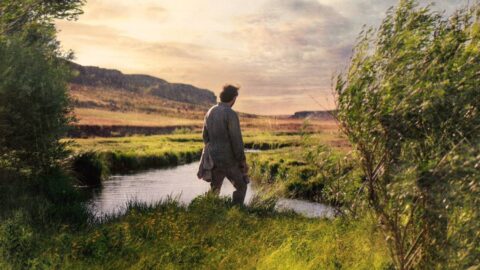In About Dry Grasses (2023), Turkish auteur Nuri Bilge Ceylan expands his attention towards a rather modern topic — toxic masculinity — by dissecting his protagonist Samet (Deniz Celiloglu), a young school teacher in western Anatolia. Continuing with his engaging style and a central Chekhovian intellectual character, Ceylan expresses rather rigidly how impotent he perceives a man to be, both in this film and, naturally, in reality.
Analysing the quality of About Dry Grasses can be a fastidious task due to the dense conversations, which serve as a surgical tool to conduct a precise autopsy on Samet, exposing his despicable, arrogant and hypocritical nature. Through his communications with various characters, imperceptibly, Samet unwittingly reveals unfavourable qualities. His dissatisfaction with his job leads him to vent his frustrations through rude and even violent behaviour towards his pupils; he displays disrespect towards females, be they girls or women, and takes advantage of their vulnerabilities, both sexually and socially.
A sexual abuse accusation made by Samet’s pupil can be seen as the pivotal moment in the story, as his life starts to spiral from that point onward. The ensuing events continue to chip away at Samet’s pride until the very last second. By publicly shaming his pupil Sevim (Ece Begci) and intentionally engaging in a sexual relationship with Nuray (Merve Dizdar), a woman who actually prefers his colleague Kenan (Musab Ekici), it becomes evident that, deep down, he is a man with unsavoury morals.
What remains unchanged is Ceylan’s focus on the intellectual’s struggle within a changing society, the still-camera visual aesthetic, and the magnificent Anatolian landscape. The long wait for the snow during the production period finds its value as the wintry narrative unfolds unhurriedly, peacefully and coldly, in sync with the seasonal yet relentless snow that seems to bury everything. Nothing better portrays the character’s yearning, passivity and despair than the void covered by boundless snow. While Samet may appear young and promising, his tiresome school career dries his pride as he loathes his surroundings more and more.
The literary nature of the conversations shed light on Ceylan’s masterful skill. The context spans from sociopolitical subjects to each individual’s values, and these discussions take place using plain and unpretentious language. While one may find Ceylan’s dialogues didactic, the audience can boldly allow themselves to overlook the intellectual aspect. The overall viewing experience is still: the storyline remains clear amidst the elaboration, the camera sitting as an eye to capture the subtlety, the micro-expressions and small movements under pleasurable, warm lights.
Ceylan’s patient storytelling, framed within his still photography style, allows the audience to thoroughly witness the fall of Samet’s façade. The audience sees not simply why Samet is toxic, but also how this toxicity corrodes his own being. Different from modern Hollywood cinema which enjoys blatant criticism against masculinity, Ceylan takes another route to crack its formidable facade and unveil its brittle core — a far more elegant narration than straightforward accusation. Once upon a time, intricate literature formed the foundation of auteur films, but we’ve moved beyond the heyday of such works. Ceylan remains one, and probably the last, of those masters from that era.
Read more analysis on About Dry Grasses and its links to Russian literature here.
Jenny S. Li, covering Cannes since 2019, always tries to write well.
